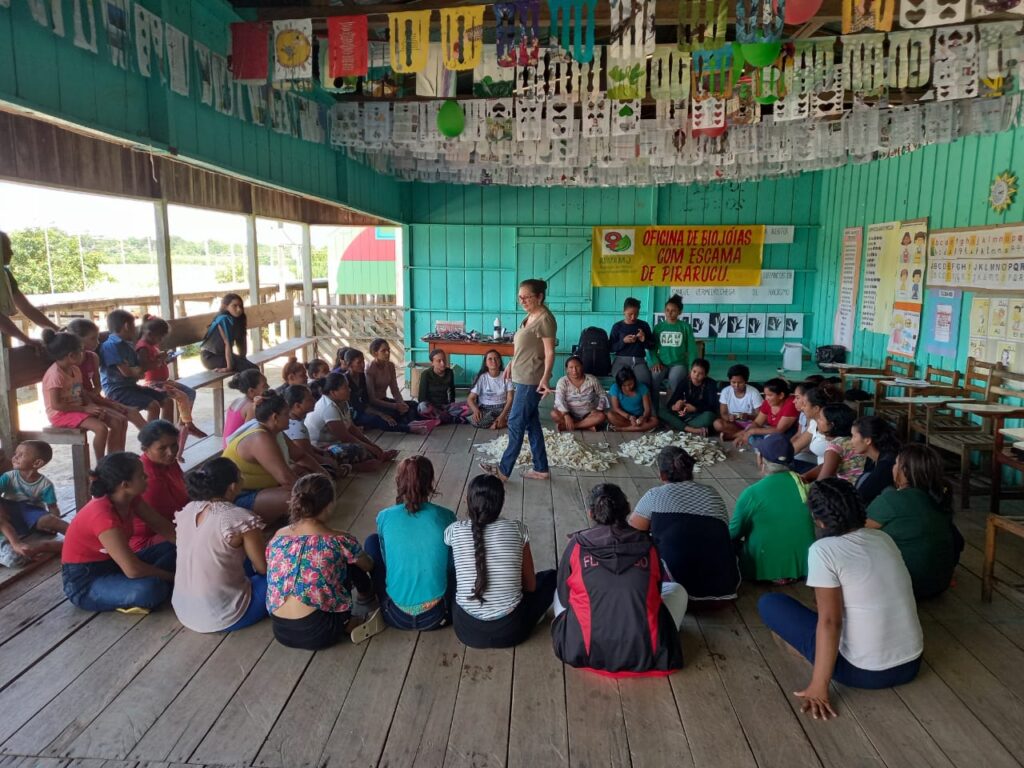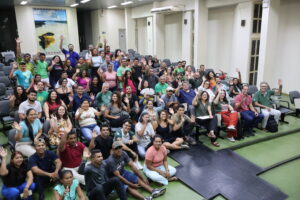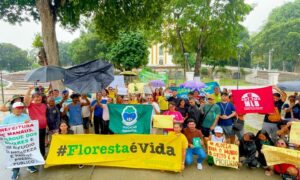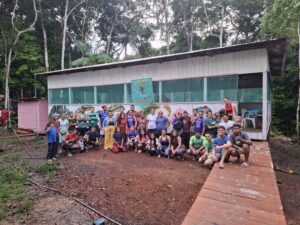By Raqueline Nery and Quilvilene Cunha
The management of Arapaima has been a reality in the Mid-Juruá region since 2011, the result of involvement, persistence and a lot of willpower of the community, grassroots organizations, and partner institutions. It was observed that the Arapaima’s viscera and scales were randomly discarded at the edge of the lakes, without any use and generation of income for the families involved in the activity.
After detecting this waste, Associação de Mulheres Agroextrativistas do Médio Juruá (ASMAMJ) thought of a way to generate income for families and inserted in the Natura program “Nos da Floresta”, the need for training in making ecojewels with pirarucu scales. The Workshop was then held with the support of Natura and ASPROC, from 27 to 29 November 2021 in the Toarí community, Reserva de Desenvolvimento Sustentável Uacari (AM), and aimed to empower as Women of the Mid-Juruá, providing another income alternative with the confection of handicrafts and ecojewels made with arapaima scales, in order to give more autonomy and financial security to the women of the Mid-Juruá region.
In the workshop there were representations from three communities of the Mid-Juruá Extractive Reserve (Novo Horizonte, São Raimundo and Morada Nova), five communities from the RDS Uacari (Bauana, Santo Antônio do Brito, Xibauá, Toari, Cachoeira and three indigenous villages (Kanamari, Matatibem and Aldeia Bauana.) In addition to a representative of the Médio Juruá Benefits Fund, an ASMAMJ employee and a consultant, totaling 36 participants.
The meeting was given by consultant Rose Dias, who is a forestry engineer, master in forestry and environmental sciences, degree in biological sciences, specialist in occupational health and safety, sustainable development, designer and artisan, who has been working in sustainable enterprises for 30 years in traditional Amazon communities.

The workshop started the process of selecting the fish scale. The arapaima scales used in the course were collected during the management of the São Raimundo community. After the selection stage, the guidelines for making necklaces, bracelets, earrings, among other products, were followed.
The workshop’s confection techniques are natural methods, with dyeing made with local plants, seeds and tucum thread or buriti and banana fiber. For this reason, it was suggested to call it “ecojoia”. Mainly taking into account sustainability as they are products collected in the forest without having to buy in the city. This collection is guided by good management practices and rational use of resources, ensuring the conservation of the forest.
Therefore, we have today in the Mid-Juruá 35 women multipliers in the production of “ecojoias” with arapaima scales, and they are willing and enthusiastic to continue the lessons learned in the training, all of them left with the commitment to work in their community and in their centers, passing on the teachings.






